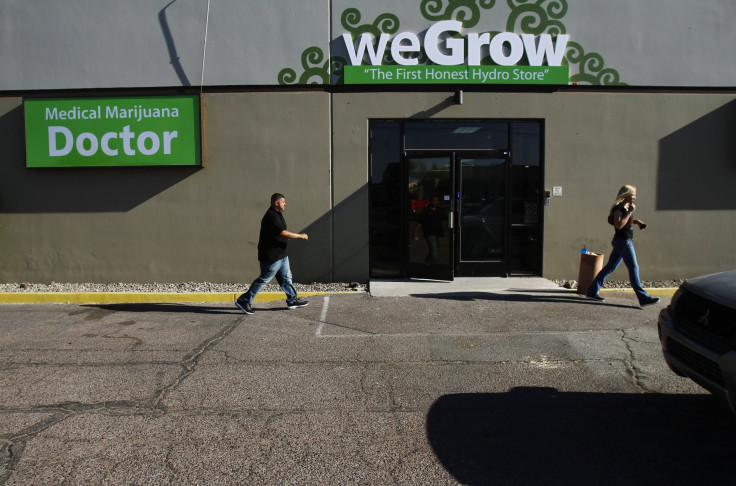Arizona Marijuana Legalization 2016: Voters Are Evenly Split On Recreational Cannabis Use

It’s a tight call in the Grand Canyon state, where voters are almost evenly divided over the issue of marijuana legalization, according to a new poll. Forty-nine percent of voters in Arizona are in favor of legalizing cannabis for recreational purposes, while 51 percent oppose making the drug’s use legal, the Phoenix Business Journal reported Tuesday.
“Predictably, those 30 and younger [69 percent] and those age 31 to 55 [57 percent] are more likely to favor legalization than those 56 and older [36 percent],” said David Daugherty, associate director at Morrison Institute, which oversaw the survey. “It is important to note, Republicans and older adults vote in larger numbers than either Democrats or young adults, which would, at least at this point in time, point toward likely defeat of the legalization of recreational marijuana.”
The Arizona State University Morrison-Cronkite poll showed that 64 percent of Democrat voters and 56 percent of independent voters support full legalization, compared to only 29 percent of Republican voters.
But Arizona could see a ballot measure in November 2016 on legalizing recreational marijuana use. A Morrison-Cronkite poll from March found that only 13 percent of respondents would want to “make all marijuana use illegal, including the use of marijuana for medical purposes.” Respondents were split on the type of marijuana use, with 45 percent wanting to make all use legal for adults while 42 percent want it to be legal for medical use only.
Arizona voters approved a medical marijuana measure in 2010 by a narrow margin of approximately 4,300 votes – winning with 50.1 percent of the vote.
The new poll, which has highlighted the political divide between Democrats and Republicans -- with voters also asked about issues including climate change and gun control -- was based on 904 telephone interviews conducted from Oct. 7-15 with registered voters. It has a margin of error of 3 percent, showing that a ballot initiative could go either way.
© Copyright IBTimes 2025. All rights reserved.






















